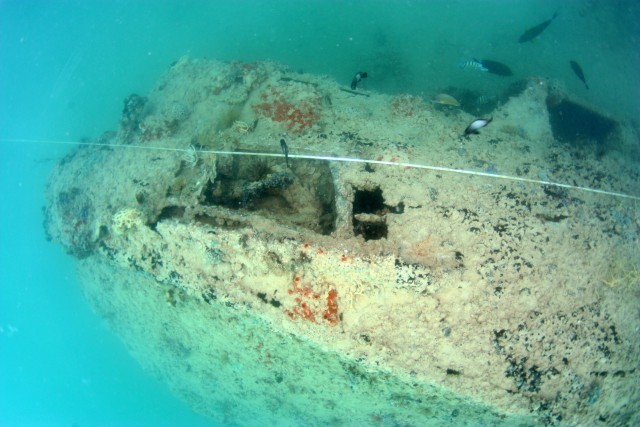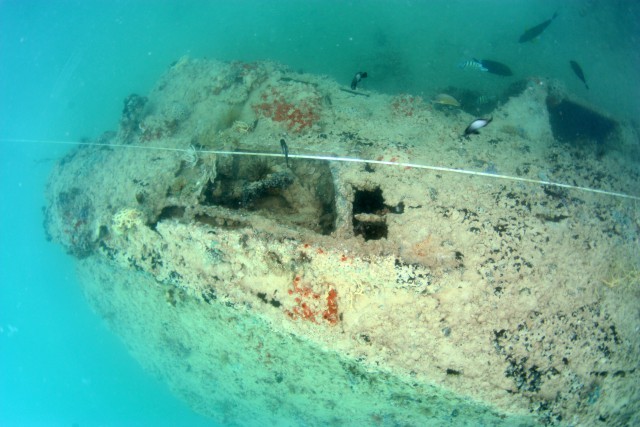
A plane from the Oahu Air Army Force Base, which was attacked by the Japanese minutes before the attack on Pearl Harbor on December 7, 1941, has been found. Archaeologists from NOAA and the University of Hawaii have recently released images of lost plane.
Aircraft from the Japanese Imperial Navy bombed the Oahu U.S. Naval Air Station. On the ground or moored on the Kane’ohe Bay, 27 Catalina PBY flying boats were destroyed. The University of Hawaii’s dive team attempted to take photos of this plane in 1994. However, due to the murky waters, they could not get a clear photo.
Nearly 14 years later, a local sports diving group, the Hawaii Underwater Explorers, were able to loo at and photograph the plane. In June, the university students went back to the wreck in another attempt to take good pictures. The water was somewhat clearer, and with new technology and camera equipment, it was possible for them to get better images.
The plane is protected by the Sunken Military Craft Act of 2004. It lies in the ocean in three pieces at about 30 feet deep. Due to the number of years it has been underwater, divers and archaeologists are unable to tell what model of plane it is.
Lead archaeologist Van Tilburg says that this could have been a PBY from the base that attempted to take off for a counterattack against the bombing. Tilburg also explained that the found plane is now evidence that there were American planes in the air during the bombing of Pearl Harbor.
Unfortunately, because it is protected under the act, the students and archaeologists are not allowed to move the plane. They can only take pictures; this has been helpful, but the archaeologists would like to examine it further.
The Catalina PBY planes were used as long-range bombers by the U.S. military. The bombing and sinking of this particular plane was a major loss, as this could have been the plane that would have pursued the bombers after the start of the attack and discover the location of the Japanese Carriers.
Not only did America lost many planes and ships in the attack, but Japanese planes also fared worse than they had planned. The Imperial Japanese Naval Air Forces lost 29 aircraft that went missing in action or crashed during the attack on Pearl Harbor. The loss included nine Mitsubishi Type Zero fighters, 15 Aichi Type, 99 carrier-based bombers, and five Nakajima Type 97 carrier-based attack bombers. These all had failed to return, having been shot down, lost in crashes, or ditched at sea while trying to find their carriers.
Currently, there are researchers conducting an investigation into what happened to those crewmen. Comparing the crashes that have been found, they can guess which planes they were and what pilots were flying the planes. Pilots and crashes that have been documented include nine Zero pilots and aircraft.
Three of the pilots were lost during the first attack on Pearl Harbor, and six Zero fighter pilots were lost in the second attack. One plane that crashed onto a nearby island was taken in to be observed and studied by the U.S. military.
Whatever survived the crash, such as weapons, cargo, or anything useful, was sent to Material Center, Experimental Engineering Section, Wright Field in Dayton, Ohio for more analysis and research. Whatever else was left after the examination was scrapped, being no longer useful to the military.
Four pieces were saved. Two are owned by private collectors, and the other two are in museums. One of the items that were saved was a piece of a cockpit. Another piece was saved by a collector; it included the name of the plane written in Japanese. A third piece was of rudder fabric, and the last piece was tuxedo pants worn by one of the pilots.
